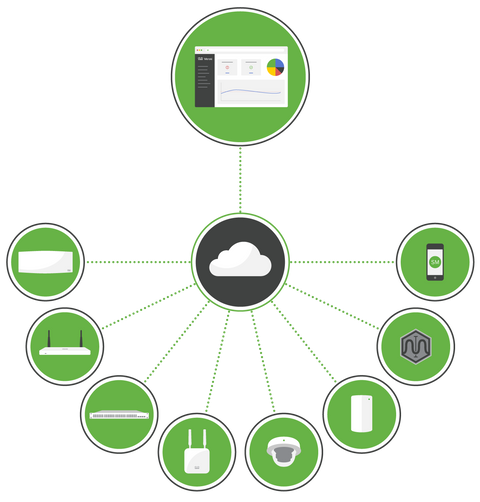Introduction
In today's interconnected world, the choice between wireless and wired networking solutions is an important consideration for businesses and individuals alike. Both options offer distinct advantages and drawbacks, and understanding their pros and cons can help you make an informed decision. In this blog post, we will explore the benefits and considerations of wireless and wired networking, helping you determine which option best suits your specific needs and circumstances.
Wireless Networking
Wireless networking has gained significant popularity due to its convenience and flexibility. Here are some of the key pros and cons associated with wireless networks:
Pros
- Mobility: Wireless networks provide freedom of movement, allowing users to connect to the network from anywhere within the network coverage area.
- Ease of Installation: Setting up a wireless network requires minimal physical infrastructure. This makes it particularly suitable for temporary setups or locations where wiring is impractical.
- Scalability: Wireless networks can be easily expanded by adding access points, making them adaptable to changing network requirements and spatial layouts.
- Device Compatibility: Most modern devices, such as smartphones, tablets, and laptops, come equipped with built-in wireless capabilities, eliminating the need for additional hardware.
Cons
- Potential Interference: Wireless networks can be susceptible to interference from other electronic devices, physical obstructions, or neighbouring networks operating on the same frequencies.
- Limited Range: The range of a wireless network is influenced by various factors such as the environment, signal strength, and interference. Large or multi-story buildings may require additional access points to ensure adequate coverage.
- Security Concerns: Wireless networks are inherently more vulnerable to security breaches, as signals can be intercepted by unauthorised users. Implementing strong encryption and security protocols is crucial to protect sensitive data.
Wired Networking
While wireless networking offers convenience, wired networking provides stability, reliability, and greater control. Here are the pros and cons of wired networks:
Pros
- Stability and Reliability: Wired networks offer consistent and reliable connectivity, unaffected by signal interference or environmental factors that can impact wireless networks.
- Speed and Bandwidth: Wired connections typically provide faster and more consistent data transfer speeds, making them ideal for bandwidth-intensive tasks like large file transfers or media streaming.
- Security: Wired networks are generally considered more secure since they are physically connected, reducing the risk of unauthorised access or interception of data.
- Lower Latency: Wired connections typically have lower latency compared to wireless networks, making them preferable for real-time applications that require immediate response times.
Cons
- Limited Mobility: Unlike wireless networks, wired networks require physical connections through Ethernet cables, limiting mobility and flexibility.
- Installation and Maintenance: Setting up a wired network involves running cables, which can be time-consuming and may require professional installation. Any changes or reconfigurations may also require additional wiring work.
- Cost and Scalability: Wired networks can be more expensive to set up, especially in larger or multi-story buildings where additional cabling infrastructure is required. Expanding or reconfiguring a wired network can also be more challenging and costly.
Conclusion
When considering wireless versus wired networking, it's essential to evaluate your specific requirements, environment, and priorities. Wireless networks offer convenience and flexibility, while wired networks provide stability, reliability, and greater control. By understanding the pros and cons of each option, you can make an informed decision that aligns with your needs for connectivity, mobility, security, and performance.



